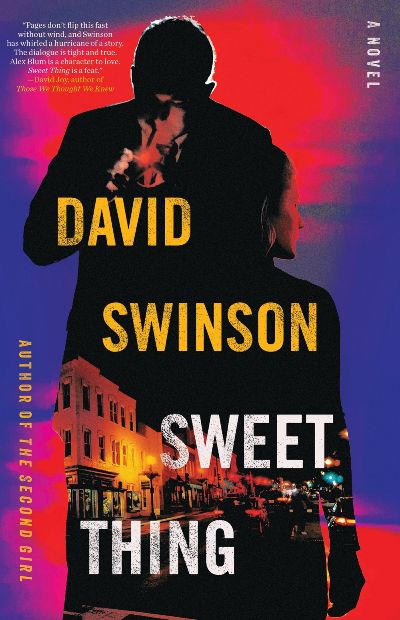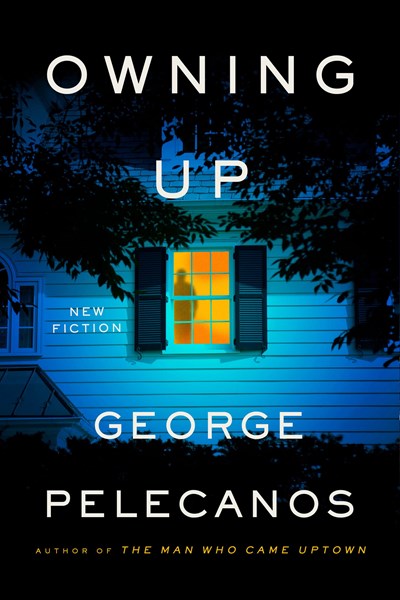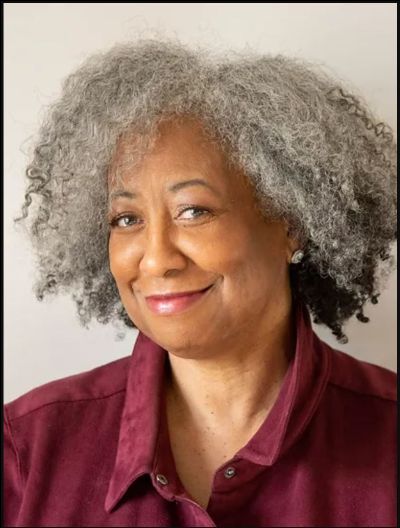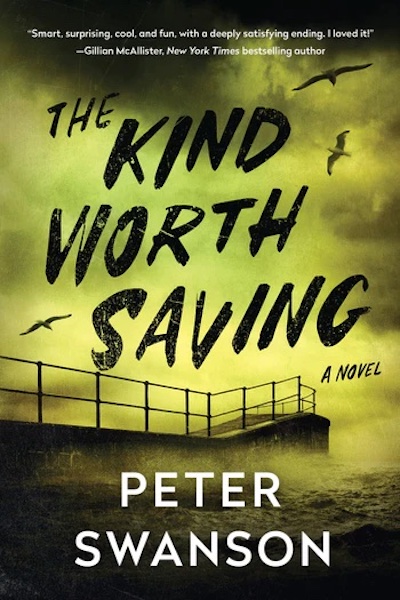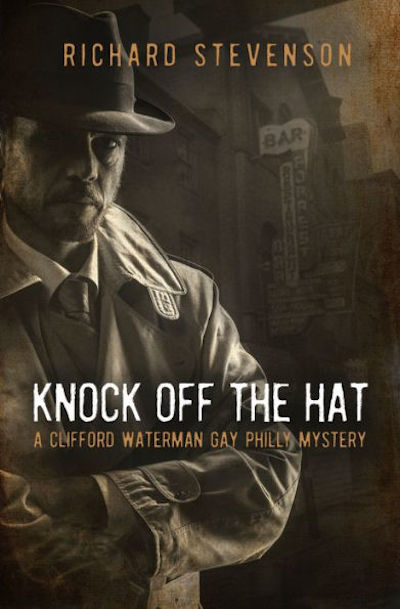Washington, DC homicide detective Alex Blum is an in-between sort of cop. He’s not jaded, but he’s used to the horror he sees on the job. He knows that, unsexy as it is, procedure gets things done, although he can cut corners when it suits. But after he’s called to a murder scene and finds that the dead man, Chris Doyle, knew one of Blum’s informants, Artie Holland, Blum throws procedure and even personal beliefs to the wind. The informant is missing—in his world as a drug dealer, probably dead, but we’ll see—but his girlfriend, Celeste, is still in his home. She and Blum take up a dangerous relationship, one that must be hidden from both his job and Artie’s cohort, who wouldn’t like a cop taking Artie’s place. Swinson’s dialog is a highlight here. The characters, from the medical examiner and cops to desperate Celeste and the dancers at a topless bar—one of Artie’s haunts—all talk us through seedy and horrible events while the rumored Y2K disaster looms and Blum edges further toward his own destruction. Swinson’s unusual ending tops the surprises in this rough, realistic noir.
Private Investigators
George Pelecanos is such a wonderful writer—word by word, sentence by sentence, paragraph by paragraph—that you can finish any of these stories only to wonder: how did I get here so fast? In these four novellas, Pelecanos mines familiar territory—Washington D.C. and Baltimore—areas he has explored in his 20-plus novels and as a film and television producer and writer who has worked on the HBO series The Wire, Treme, and more. In the first story, “The Amusement Machine,” two men—one white, Ira; and one Black, Jerrod—meet at a book group in jail and form a tentative friendship that extends beyond prison. Until a foolhardy act on Ira’s part, which nearly implicates Jerrod, seemingly destroys whatever relationship they might have. In “The No-Knock,” a family’s home is invaded by the police operating under a no-knock warrant, which allows the cops to force entry without identifying themselves. They are seeking one of the teenage sons, Vince, who eventually turns himself in, guilty of robbing a marijuana dealer. But while the son never again engages in criminal activities, the violence and disruption of the home invasion is something the father can never get past, with it haunting him for the rest of his life. Novellas are great for book groups, especially today when people are often intimidated by a 300-page novel, but crime fiction offers few novella choices. This collection is one of the very best.
This new title from Delia Pitts—author of the Ross Agency series—offers everything that fans of detective fiction are looking for. Vandy Myrick, a former cop—she joined the force to impress her cop dad—is now a detective in Queenstown, New Jersey, her hometown, where she sets up a firm with BFF and trial lawyer Elissa. They’re two Black women in a town where racism, “casual like flip flops down the Jersey shore,” is always bubbling right under the surface. Vandy’s work is mainly divorce cases, and when she gets a call from the Mayor’s nephew—Queenstown royalty—asking her to track his wife, she just assumes that one more “Q-Town” marriage has hit the rocks. Except this gig quickly spins out of control when Vandy walks in on a double homicide, one that the powers that be are all too eager to shut down. Pitts has written a strong narrative that ricochets from Vandy’s tragic past to her gutsy present, keeping readers totally engaged to the very last page…and eager for more. Fans of Robyn Gigl’s thrillers will enjoy visiting New Jersey with Vandy.
What the world needs now is a great, queer detective, and Rosen is well on his way to creating him. The second in the series—the first was fun but also a bit idiosyncratic—this has the makings of a classic detective novel with a strong supporting cast. It’s San Francisco in 1952, and we’re back with struggling detective Andy Mills, whose home and office are above Ruby, a gay bar. Ex-navy and an ex-cop, Mills is still struggling to gain acceptance from the queer community. But along comes a case that may help him turn around his image. First one, then several people, it turns out, are being blackmailed—sex photos taken in a hotel, holes drilled through the wall—and Mills is on the case. But as with any good crime novel, the story isn’t what you first expect, and soon Andy is reunited with his Navy flame who disappeared seven years ago. Set against the queer bars of the city, the continual raids orchestrated by the police, and the foggy bay itself, this book is powerfully atmospheric. It ends leaving Andy free from the past and ready for the future. Exactly what most readers will be waiting for.
You could call it a meta-mystery. Or you could just call it a whole lot of fun. Gerald Ford is president, the Concorde is dominating the news, while Neil Sedaka is on the turntable. Detective Adam McAnnis accompanies a college chum to the West Heart Club, sort of an Adirondack hunting club set in the northern New York wilderness, crawling with tipsy uber-WASPS. This place is so old and insular the residents speak their own sort of slangy English. What brings a New York City detective to this rarefied compound? Hard to say, but it’s clear he’s got a motive. Comparisons to the Blades Out series are inevitable, but McDorman’s novel is a whole lot more sophisticated and a good deal more humorous. Reading this book is a bit like driving behind a school bus and a garbage truck; the narrative leaps ahead, only to pause while we’re treated to an essay on the rules of the mystery, or the nature of locked-room stories. Then we move ahead a bit, only to stop and be regaled by the disappearance of Agatha Christie, Auden on the Whodunit, and any number of references to mystery’s grand tradition. Confused at where we are? Fear not. There are narrators ready to jump into the fray and remind us we are in a detective story, and what to believe—and what not. It’s a thrill to come across a book that is at once so playful and so erudite.
It’s no wonder Harry Duncan’s ex-wife, Ellen, a U.S. Attorney, calls him when her cases need some extrajudicial help. Former cop Harry is an expert at getting himself into trouble—just the kind that suits his investigations—and getting back out, with each leg of the journey equally satisfying. His current murder book, or record of a crime investigation, opens when Ellen asks him to hit the road on her behalf to look into what might be a new criminal organization setting itself up in Indiana. Arriving in Parkman’s Elbow, a town identified as one focus of the possible gang, Harry stops for lunch, the action finds him immediately, and his combination MacGyver/James Bond maneuvers are decidedly ON. The investigation often takes a back seat as readers get lost in Harry’s vigilante moves—defeating bumbling bad guys in ways that ridicule them, saving a woman the gang is trying to extort—and his smart evasion and tracking methods. But the case is almost beside the point when such exciting chases and devastating put-downs of criminals are on the menu. Would the police really ignore the wild things Harry does? Probably not, but you won’t care. One for a late-night binge.
A sequel of sorts to the devious The Kind Worth Killing, this novel also features PI Henry Kimball, one of the more low-key but wry detectives in the business. Central to this story is Joan, one of Henry’s students from the one year he taught high school. She pops up in his life wanting him to prove that her husband is cheating on her—a bread-and-butter job for any detective—except Henry can’t quite shake the feeling that there’s more to the story than Joan is telling. As it turns out, Joan, helped out by her buddy Richard, has been a murderer since high school–it’s the only thing that really brings the friends to life–and Swanson takes us through each of the perfect murders the team has executed. By the time we get back to the present, it’s clear that there’s a whole lot more in store for Henry than he would ever have imagined. Swanson is such an adroit novelist, moving us smoothly from present to past and back again, building up the tension, stoking the anxiety, all while interjecting some perverse humor through the characters and their observations. And kudos for such a surefire depiction of the Boston suburbs. Reading the earlier book first would be slightly helpful, but this still works as a standalone. Wickedly delicious!
This is turning out to be one of the most unique, captivating, and above all emotionally engaging crime fiction series being published. Happy Doll—yes, that’s his real name—is 50-ish, ex-military, and a former LAPD cop who lost his PI license and now calls himself a “security consultant.” Yes, Doll has many of the noirish trappings of your classic LA detective, from his worn-down office to his status as a regular at a dive bar. But he’s also a fledgling Buddhist who’s in love with George, a half-Chihuahua, half-terrier mix, is in psychotherapy, and is incredibly generous to those he comes across—provided they’re not trying to kill him. In this story, Doll is approached by a young woman to search for her mother, Iris Candle, who’s likely to be homeless. Candle and Doll, it turns out, were lovers years ago, and Doll can’t turn down an opportunity to see her again. After a week of searching, Doll finally locates Candle—worn down by drugs and years of living on the streets—and their reunion is one of the most poignant passages I’ve read in years. It also sets off the book’s real narrative, complete with some horrific, but highly entertaining, violence and a quest that brings Doll to the edge. As much as I love Ames’ novels and comic memoirs, Happy Doll is his most innovative and successful character yet. Fans of aged, semi-hard-boiled, humorous Los Angeles detectives will also enjoy Andy Weinberger’s The Kindness of Strangers.
It’s summer in post-World-War-II Philadelphia. The temperature is rising, and so too is the gay bashing, thanks to the police department and the City’s hugely corrupt judicial system. Tough-talking, but also hugely funny, Clifford Waterman—a former police detective who received a dishonorable discharge from the Army for being caught in the act in Cairo—is trying to make a go as a noirish PI. He’s hired to get the charges against a young man caught up in a bar raid dismissed and his $500 bribe reduced. Shake-downs of lesbians and gay men are nothing new, but Waterman begins to realize that the scope of the attacks and the size of the bribes are escalating hugely—along with the psychological damage and suicides that the publicity is causing among the LGBTQ community. Waterman’s search is a broad one, taking him throughout the greater Philadelphia area and up and down the social ladder. Sex and lovers, the relationships between Black and white queer men—expect the racist language of the day—and jazz and the blues all contribute to creating a memorable time and place. It’s great to have the author of the ground-breaking Don Strachey novels back with what we can only hope will be as prolific a series.
It’s 2 p.m., and Evander “Andy” Mills is sitting alone at a bar, suicidal ideations dancing in his head. And for a good reason. A detective with the San Francisco police, his world was ripped apart when he was caught in flagrante delicto during a raid on a gay bar and thrown off the police force. This is, after all, 1952, and until now Andy has succeeded in keeping his sexuality locked away from the rest of his life. As he reaches for his fifth martini, he’s interrupted by a society woman who has a proposal for him: investigate the mysterious death of her wife, Irene Lamontaine, who died in Lavender House, the family estate. Did she say “wife?” Indeed she did. And off we go to Lavender House, home to the Lamontaine family, who own a soap dynasty, and where nearly everyone, from family members to the help, is absolutely queer. Their world is a fascinating one, as free as it is safe—until, that is, Irene was murdered. No reader who’s made it through the first chapter could ever think of abandoning this magical novel as it morphs into a sort of locked-room mystery with culprits everywhere. But as engrossing as the Lamontaines may be, it’s Andy who centers the narrative, and who emerges from the story—to use contemporary jargon—beginning to heal, both physically and emotionally. Here’s hoping this is just the beginning of Andy Mills’ investigations.

